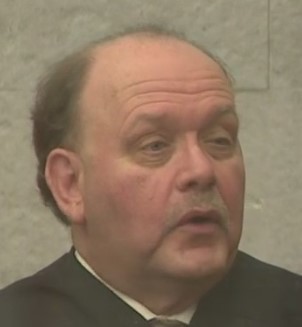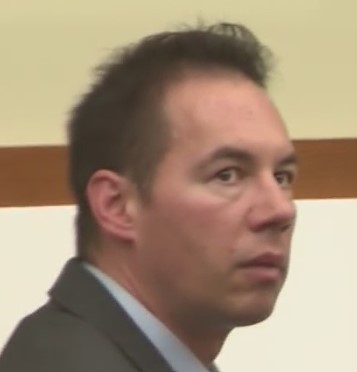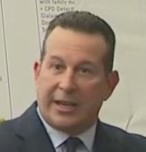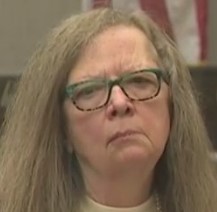The trial of Dr. William Husel is being livestreamed each day on NBC4i.com and the NBC4 app.
COLUMBUS, Ohio (WCMH) — Defense and prosecuting attorneys fired a barrage of questions at a former Mount Carmel pharmacist who testified Wednesday in the murder trial of Dr. William Husel.
Talon Schroyer, who was terminated from Mount Carmel Health System in July 2019, is the second witness to take the stand in Husel’s murder trial.
Husel, 46, is being tried in the deaths of 14 patients under his care at the former Mount Carmel West hospital from 2015 to ’18. He has pleaded not guilty.
Schroyer, who worked night shifts at Mount Carmel from 2017 to 2019, faced accusations of approving orders for potentially fatal doses of fentanyl for Husel’s patients, according to several wrongful death lawsuits filed by family members of patients who died under Husel’s care.
Franklin County Assistant Prosecutor David Zeyen questioned Schroyer about his role at the hospital, various medical devices and procedures, and specific incidents where he approved Husel’s medication orders.
Zeyen displayed medical records from a litany of Husel’s former patients, including Larry Brigner, Janet Kavanaugh, Brandy McDonald and Bonnie Austin, all of whom died after receiving a fentanyl prescription.
Schroyer, tasked with verifying medication orders submitted by Mount Carmel doctors, said that when he first saw the 1,000 microgram-order of fentanyl requested for Kavanaugh, a 79-year-old who died in December 2017, the dose seemed “a little unusual.”
He said he consulted with fellow pharmacist Greg Dresbach, who said although Schroyer “was not crazy” for thinking the fentanyl dose was unusual, it wasn’t an unusual order from Husel.
After his conversation with Dresbach, Schroyer said he gathered that although he could question the order, it wasn’t likely to be changed. Regardless, Schroyer said he gave Husel a call.
“I asked something to the effect of, ‘Hey doc, I got this order for fentanyl here. Did you add an extra zero on?'” Schroyer said.
According to Schroyer, Husel assured him that the fentanyl order was part of Kavanaugh’s medical procedure. The two hung up the phone, and Schroyer said he verified the order.
Although Schroyer said Husel never explained Kavanaugh’s specific medical procedure, Randy Miles, an operations manager at Mount Carmel, told him that Husel ordered the fentanyl for palliative vent withdrawal — removing a patient from a ventilator.
“It’s a very large dose of medication for a palliative vent withdrawal than it maybe needed to be, and it didn’t look good,” Schroyer said.
For the sake of “self-preservation,” Schroyer said he informed Miles about concerns he had regarding Husel’s fentanyl order.
“The irony of this whole situation, at least for me personally, I talked to Randy because I didn’t want to end up in a witness chair in a court of law,” he said.
Zeyen also asked Schroyer about “retrospective” medication orders — cases in which a doctor obtains or administers medication prior to a pharmacist’s review.
In the case of Husel’s 37-year-old patient Brandy McDonald, who died in January 2018, Zeyen displayed medical records indicating that a nurse obtained and administered fentanyl to McDonald before the pharmacy had a chance to review the medication order.
“It was given before we were made aware of it,” Schroyer said.
When a retrospective order is placed, Schroyer said the pharmacy simply verifies the already-obtained medication order in the hospital’s computer system, removing the orders from the pharmacy’s queue of orders to fill or approve.
“You just verify ’em and get rid of them,” he said.
While Zeyen focused his line of questioning on Husel’s ordering of fentanyl and other drugs to patients, Husel’s defense attorney Diane Menashe emphasized the role that other Mount Carmel employees played in the provision of fentanyl to patients — and life-saving measures she said Husel took to resuscitate patients.
Menashe asked Schroyer about “tech” staff at Mount Carmel who are tasked with refilling medicine dispensaries at the hospital.
Each time a doctor withdrawals medication from a hospital dispensary, Menashe said the “tech” staff receives a report on how much medicine was removed.
“Another means of communication that the pharmacy is getting about how much fentanyl is being used,” she said.
Menashe also narrowed in what she said was Schroyer’s failure in leaving comments on doctors’ medication orders to ask questions or express concern over a specific medication — and the failure of Mount Carmel to implement policies pertaining to maximum dosages of fentanyl.
In a letter Schroyer wrote to Mount Carmel urging the hospital to reconsider his termination, Menashe repeated to the jury that Schroyer said “there’s no policies or dosages that says they’re too high.”
Before James Timmons, 39, died under Husel’s care after a prescription of fentanyl in October 2018, Menashe said Husel successfully resuscitated him while he was suffering from a heart attack. And, in the case of Kavanaugh, she said Husel and other hospital employees successfully revived her.
“Once again, we have William Husel saving a life before the fentanyl script,” she said.
Here are some of the individuals who may appear during the proceedings:
Judge
 Michael Holbrook
Michael Holbrook
Defendant
 Dr. William Husel
Dr. William Husel
Defense attorneys
 Jose Baez
Jose Baez- Jaime Lapidus
- Diane Menashe
Prosecuting attorneys
- Corinne Buker
- Paula Sawyers
- Taylor Mick
- David Zeyen
 Janet Grubb
Janet Grubb- Powell Miller










